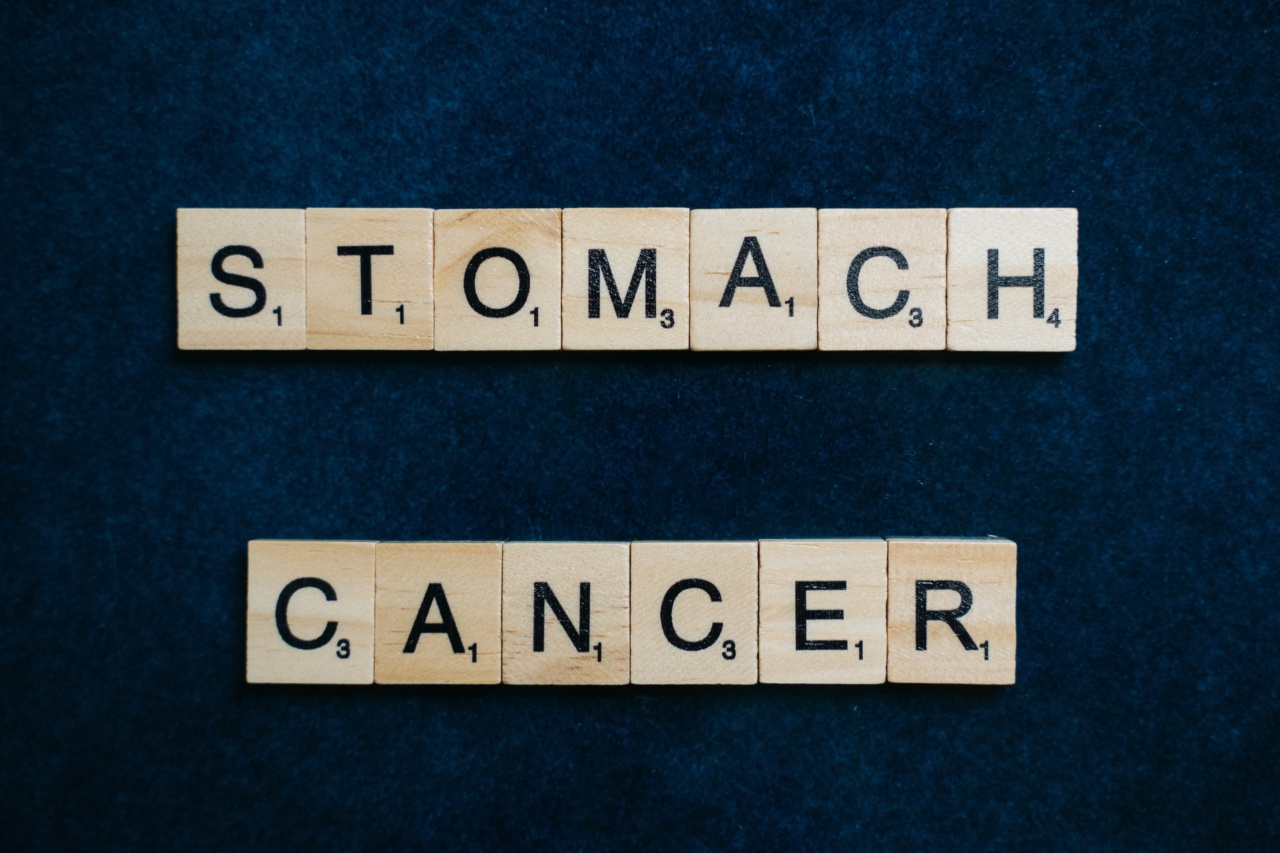Stomach cancer, also known as gastric cancer, is a malignant tumor that develops in the lining of the stomach. It is a serious and potentially life-threatening illness that affects millions of people worldwide.
According to the World Health Organization (WHO), stomach cancer is the fifth most common cancer globally, with approximately 1 million new cases diagnosed each year.
Understanding Stomach Cancer
Stomach cancer can be categorized into different types, including adenocarcinoma, which is the most common form, and other less common forms such as lymphoma, gastrointestinal stromal tumor (GIST), and carcinoid tumor.
The exact cause of stomach cancer is still unclear, but certain risk factors have been identified. These include age (most commonly affects people over 50), a diet high in salty and smoked foods, Helicobacter pylori infection, family history of stomach cancer, and certain genetic conditions.
Early Detection and Diagnosis
Early detection plays a crucial role in improving the prognosis and survival rate of stomach cancer. However, this disease often goes undetected in its early stages as symptoms may be vague or resemble other gastrointestinal conditions.
Some of the common symptoms include persistent abdominal pain, unintentional weight loss, loss of appetite, difficulty swallowing, nausea, and blood in the stool. If you experience any of these symptoms, it is important to seek medical attention for further evaluation and diagnosis.
Treatment Options
The treatment of stomach cancer depends on various factors, including the stage, location, and extent of the tumor, as well as the overall health of the patient.
Treatment options may include surgery, chemotherapy, radiation therapy, targeted therapy, and immunotherapy. The choice of treatment is generally determined by a multidisciplinary team of healthcare professionals specializing in oncology.
The Stomach Cancer Inhibitor Method
While traditional treatment methods for stomach cancer focus on surgery and chemoradiotherapy, there is growing interest in alternative approaches to inhibit the growth and spread of cancer cells.
One such method is the Stomach Cancer Inhibitor (SCI) method, which aims to target and suppress cancer cells while minimizing harm to healthy cells.
The Key Principles of the Stomach Cancer Inhibitor Method
The Stomach Cancer Inhibitor method is based on several key principles that help slow down the progression of stomach cancer:.
1. Nutrition and Diet
A well-balanced and nutritious diet plays a crucial role in cancer prevention and management.
While there is no specific diet that can guarantee the prevention or cure of stomach cancer, certain dietary choices can help support overall health and strengthen the immune system. Eating a variety of fruits, vegetables, whole grains, lean proteins, and healthy fats is recommended. Additionally, limiting the consumption of processed foods, alcohol, and tobacco is important to reduce the risk of stomach cancer.
2. Physical Activity
Regular physical activity has been associated with a reduced risk of various cancers, including stomach cancer.
Engaging in moderate-intensity activities such as brisk walking, swimming, or cycling for at least 150 minutes per week can help maintain a healthy weight and improve overall well-being. However, it is important to consult with a healthcare professional before starting any exercise program, especially for individuals undergoing cancer treatment.
3. Stress Management
Chronic stress has been linked to a higher risk of cancer and can negatively impact the body’s immune system.
Practicing stress management techniques such as mindfulness meditation, deep breathing exercises, yoga, or engaging in hobbies can help reduce stress levels and promote overall well-being.
4. Herbal Supplements
Some herbal supplements may have potential anticancer properties and can be used as complementary approaches in cancer management.
However, it is essential to consult with a healthcare professional before incorporating any herbal supplements into your routine, as they may interact with other medications or treatments.
5. Regular Medical Check-ups
Regular check-ups and screenings are vital for the early detection and diagnosis of stomach cancer. These may include endoscopy, biopsy, and imaging tests.
It is crucial to follow the recommendations of your healthcare provider and attend routine screenings as advised.
Conclusion
The Stomach Cancer Inhibitor (SCI) Method combines various strategies to help inhibit the growth and spread of stomach cancer.
While this approach should never replace conventional medical treatment, it may complement existing therapies and contribute to overall well-being. Remember, early detection, proper medical care, and a healthy lifestyle are crucial in the management of stomach cancer.































